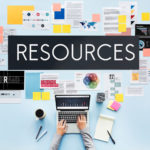
By Sabine Schuller
Can you believe it’s the end of the year? Here are eight resources that caught my attention in 2018.
1. كيف تبحث في الشرق الأوسط إذا كنت لا تقرأ العربية
Because Rotary, the organization I work for, has a presence in more than 200 countries I keep my eye out for any and all worldwide resources. I scan for new resources regularly and tuck away interesting ones for later. I can remember seeing this post “How to Collect Sources from Syria If You Don’t Read Arabic“ and saying to myself, “Well how interesting, my research work usually doesn’t take me into Arabic speaking countries but I’ll save this anyway.” Little did I know I’d be researching an Egyptian six months later.
2. OCR (Optical Character Recognition) reverse search
Has this ever happened to you? You find intriguing text in a language you don’t know. The added challenge is that it’s locked into an image format like .jpeg or .pdf so you can’t just copy the text into a translation tool. This OCR reverse search tool is recommended by Bellingcat’s Arabic article, I’m sure there are others. Once the OCR tool releases the text from the image, run it through a machine translation tool like Google Translate. I’ve used this technique to extract a photo caption to confirm or deny a woman in the picture was a prospect’s wife.
3. Phil Bradley
A well-known information professional based in the UK is retiring this year. He says he won’t be maintaining the domains for his blogs and website so be sure to check them out before they go. Raise a glass to a successful research career!
4. Try This! — Tools for Journalism
This free weekly newsletter from Poynter (a US non-profit focusing on journalism) connects digital tools to journalists. Some of the suggestions are probably out of scope for regular donor research work, as fascinating as they are. If you ever wondered how reporters find and share information on hurricanes and other disasters – read this blog post. There are also useful nuggets like this free webinar: Fact-Check It: Digital Tools to Verify Everything
5. How to navigate Google country search changes
Technically, this is “cheating” since Google changed how its search engine accesses country specific results in Fall 2017. In previous versions, you could limit searches by country. (e.g. Google India or Google Japan prioritized results from those countries) Google’s “helpful” redesign decides your physical location is the epicenter of your search. If it figures out you are in Mandan, USA it prioritizes the National Sunflower Association in North Dakota over the Argentinian sunflower association you really wanted.
Here are two blog posts that suggest work arounds:
- How to See International Google Search Results without a VPN
- For Google, it’s location, location, location
6. Statistics Canada
An amazing collection of information on Canadian industry and demographics in English and French courtesy of the Canadian government. I usually limit my search by geography (city, province) or by topic (housing, labour, languages) but there are other options. If you should ever need data on the production and value of honey in Manitoba – you can look no further.
7. Amelia Aldred’s Philanthropologist website
Amelia Aldred, a University of Chicago lead donor researcher, maintains a website gathering links of US and world-wide information sources. It’s a handy one-stop guide that brings you to Prospect Research Institute’s, my, Helen Brown Group’s, and NU/University of Chicago’s collections.
In addition to the links she also writes quarterly blog posts. My favorite is from August which examines and critiques international philanthropy reports from India, Latin America, and the US.
8. Alliance magazine
Nice collection of articles on philanthropy worldwide. Some articles can be accessed for free – the rest by subscription. They’ve covered Asian giving circles, Muslim philanthropy, and most intriguing to me “diaspora philanthropy”.
While there are many studies focusing on mega gifts from royal families and tech moguls, I don’t see as much attention paid to the small droplets of money sent home from migrant workers flowing together becoming a mighty river.
And one to grow on…
The donor research community
From the seasoned experts who gracious share their hard won experience to the newbies eager to learn – thank you! It’s not too early to make a 2019 resolution to connect with your local Apra donor research chapter and grow with your community.
What are YOUR favorite resources?
About Guest Blogger
Sabine Schuller, MLIS works at The Rotary Foundation, a volunteer organization of professional and business leaders that initiates humanitarian projects worldwide. As a donor researcher, she identifies and analyzes donors around the globe. She was also a program officer for Rotary, coaching grant applicants in Latin America, Europe, and North America. Sabine’s first experience in the nonprofit world was at Northwestern University. She developed industry analyses for new commercial opportunities at an international business development center. Sabine is a proud member of the Illinois donor research chapter APRA-IL and also supports her local business librarian association, SLA-IL. Connect with her on LinkedIn.